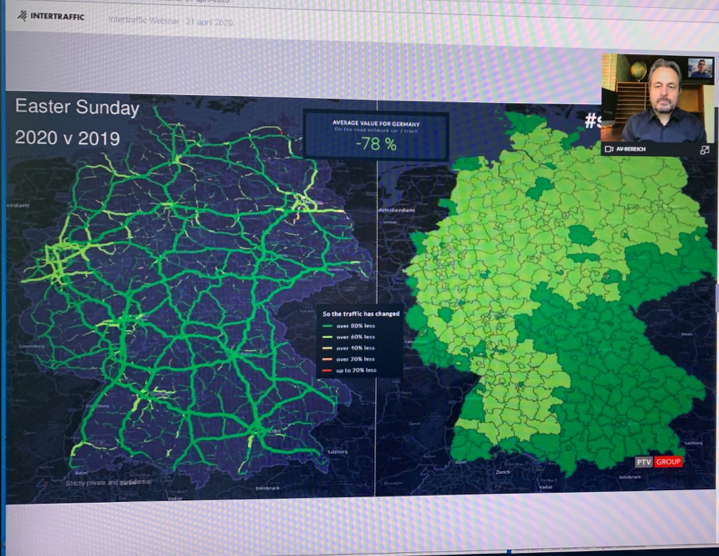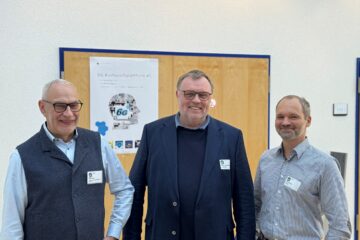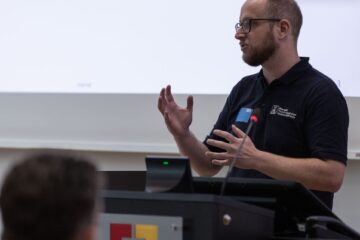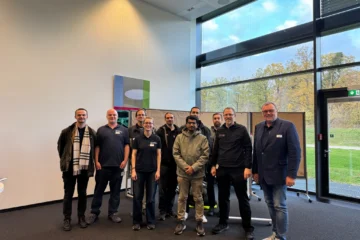Intertraffic Webinar “Changing modes in post-Corona times”
Online, 21 April 2020
FGVT stays connected and attends virtual events, such as Intertraffic Webinar “Changing modes in post-Corona times”. Intertraffic is a global platform for traffic and transport sector, whose mission is “speeding up the mobility transition”. Intertraffic events are organized yearly in different parts of the world. This year, most of them are rescheduled due to the situation in the world. However, on April, 21st, the originally planned opening day of Intertraffic Amsterdam, the platform launched a series of webinars. In the first webinar, Carlo van de Weijer interviewed three experts on the questions regarding the future of mobility.
Aurelien Cottet, Innovation Project Leader at Transdev – one of the leading MaaS (mobility-as-a-service) providers – reflected on how the travelers would experience MaaS. Currently, fewer people go outside and use transport. Shared mobility is a risky environment, and the fear might remain after the pandemic crisis. Redesigning buses to have more space is not only costly, but impossible without redesigning the infrastructure. Cottet sees a system with more buses and preliminary online seat reservation as a possible MaaS solution, which would shift public transportation towards more demand-driven approach. Ticketing via mobile is another safety option. Cottet assumes that mobility services might change from private to public, but both should be integrated into the same platform and regulated by the administration. Rewarding policies should be applied rather than punishing policies, so that people would take safer means of transportation.
Paul Speir, Director for Project Management & Services at PTV Group – a world renowned software developer for transport and logistic planning – told about using data on cars, pedestrians and public transport, noting unprecedented importance of human behaviour characteristics at the moment. He demonstrated the changes in car mobility on Easter Sunday in Germany: massive decrease in traffic comparing to 2019, almost no one travelling to the border cities (e.g. Görlitz), localized increase in journeys vs reduced long-distance movements in comparison with the situation two weeks earlier. Speirs regards the current situation as a good time for governments to spread good messages to lock down some positive habits. Biking and walking on foot is one of such directions. Another good habit is working from home, when businesses trust employees, and the latter are productive working at home.

Chris de Veer, Strategic Advisor on Smart Mobility in the province of North Holland, also made an emphasis on both cycling and working from home. According to him, the Netherlands have been investing in footpaths and bike lanes for 30 years and demonstrate that is always a no-regret investment. On the contrary, more roads do not seem to be a good solution in a long run because the traffic eventually increases. De Veer suggests reminding that working from home is a new modality and people should regard it as such. It can be a sustainable solution, and providing broadband internet is important. In agreement, one of the webinar listeners coined a phrase “changing from wide roads to broad bands”.
More information about Intertraffic Webinars: https://www.intertraffic.com/webinars/
More information about PTV Group interactive map: https://blog.ptvgroup.com/en/city-and-mobility/coronavirus-traffic-map/


